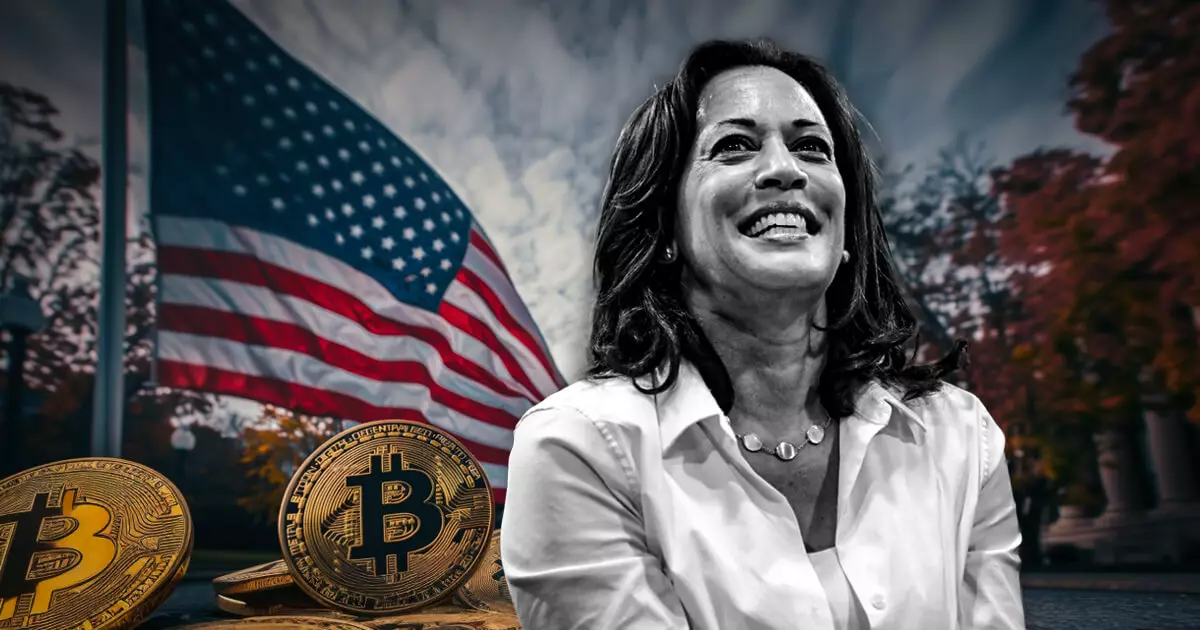The cryptocurrency sector is at a pivotal moment, influenced significantly by the political landscape in the United States. With the upcoming presidential election, candidates’ positions on cryptocurrency could dictate the future trajectory of this burgeoning industry. Alex Thorn, head of research at Galaxy Digital, has synthesized the candidates’ stances into a comprehensive “policy scorecard” that highlights where they stand on various issues affecting the crypto market. This article delves deeper into the key findings of Thorn’s analysis, specifically comparing the views of Vice President Kamala Harris and former President Donald Trump.
The research indicates that while both candidates present varying degrees of support for the crypto sector, their approaches diverge significantly. Thorn posits that a win for Kamala Harris would result in less negative impact compared to the current policies under President Joe Biden. However, Donald Trump emerges as the frontrunner for the most favorable stance on cryptocurrency. This dichotomy raises intriguing questions about the future of crypto regulation and its implications for both investors and the technology itself.
Importantly, Harris’ policies, while less stringent than Biden’s, do exhibit some hostility towards certain aspects of the crypto market—particularly around tax issues. In contrast, Trump offers a more clear-cut and supportive framework, suggesting that his policies could invigorate the industry, which has been grappling with a lack of regulatory clarity.
One of the significant areas of contention between Harris and Trump pertains to tax policy. Harris has positioned herself as a critic of the tax cuts established during Trump’s presidency, which could imply an adversarial approach toward the crypto industry, especially in the context of taxing digital assets. According to Galaxy analysts, her administration may pursue aggressive tax policies that could stifle innovation and growth within the sector.
Conversely, Trump’s expected tax policies are perceived to be more accommodating, potentially fostering an environment of growth for crypto-related activities. This stark contrast reveals a broader narrative of how each candidate views wealth generation and digital assets—a crucial factor that could sway crypto investors and enthusiasts alike.
Mining and Banking Regulations: Who Will Be More Supportive?
The scorecard highlights further distinctions in each candidate’s stance on Bitcoin mining and banking regulations. Harris’s posture is described as “slightly better” than Biden’s but still carries a degree of skepticism. Notably, her campaign has not been vocal on the subject of Bitcoin mining taxation, contrasting strikingly with Trump, who is portrayed as highly supportive of mining operations. He has positioned Bitcoin mining as a critical component of domestic manufacturing—a significant endorsement that could bolster mining activities.
In discussing banking access, the difference is stark. There are indications that a Harris administration may soften some of the restrictions under “Operation Chokepoint 2.0,” which limits banking services for crypto entities. Meanwhile, Trump’s pledge to eradicate these limitations entirely showcases his commitment to facilitating broader access to traditional banking for crypto ventures, which could instigate substantial growth in the industry.
When it comes to self-custody—an essential aspect of the crypto ethos—both candidates have made vague statements. Harris hasn’t explicitly commented on self-custody, while Trump has shown some support for it, promising to safeguard the rights of individuals who choose to hold their assets independently.
The implications of these varied stances extend well beyond Bitcoin, particularly for altcoins. Trump’s presidency might introduce clearer regulations that could catalyze the performance of altcoins against Bitcoin, whereas Harris’s policies may introduce uncertainties that could impede the growth of altcoins. The intricate landscape described by Thorn emphasizes that while Bitcoin might remain stable regardless of the election outcome, altcoins face a more precarious future contingent on the election results.
As the election approaches, the cryptocurrency community finds itself at a crossroads. The distinct approaches of Harris and Trump toward the crypto market illustrate the wide array of potential outcomes the industry may face. Whether it’s through supportive tax policies or banking reform, the candidates’ policies will undoubtedly shape the operational framework for cryptocurrencies in the months to come. In light of these findings, stakeholders in the crypto ecosystem must navigate these uncertain waters with careful consideration of the political landscape, as the implications extend far beyond regulatory frameworks and into the very essence of what cryptocurrencies are designed to represent.















